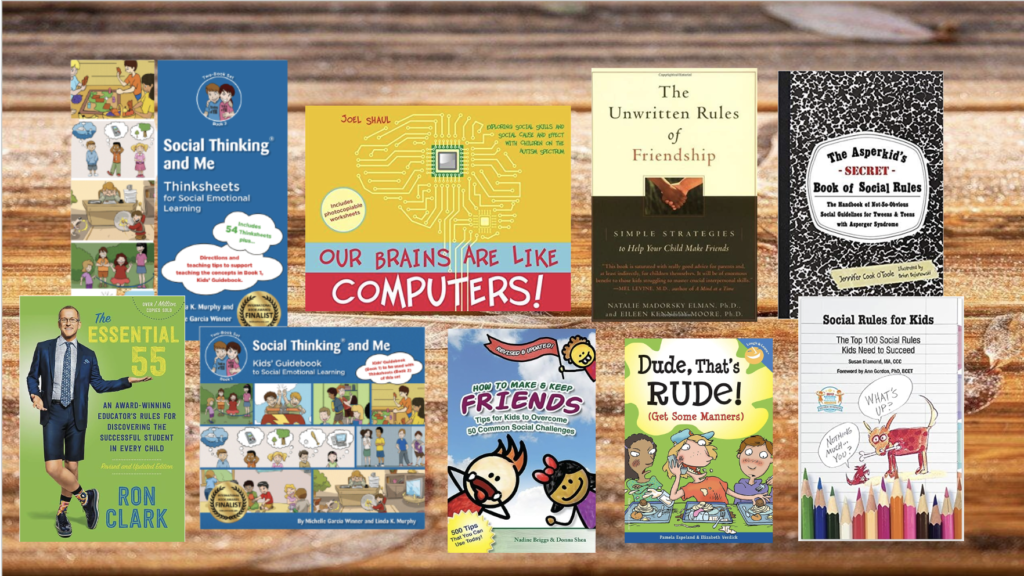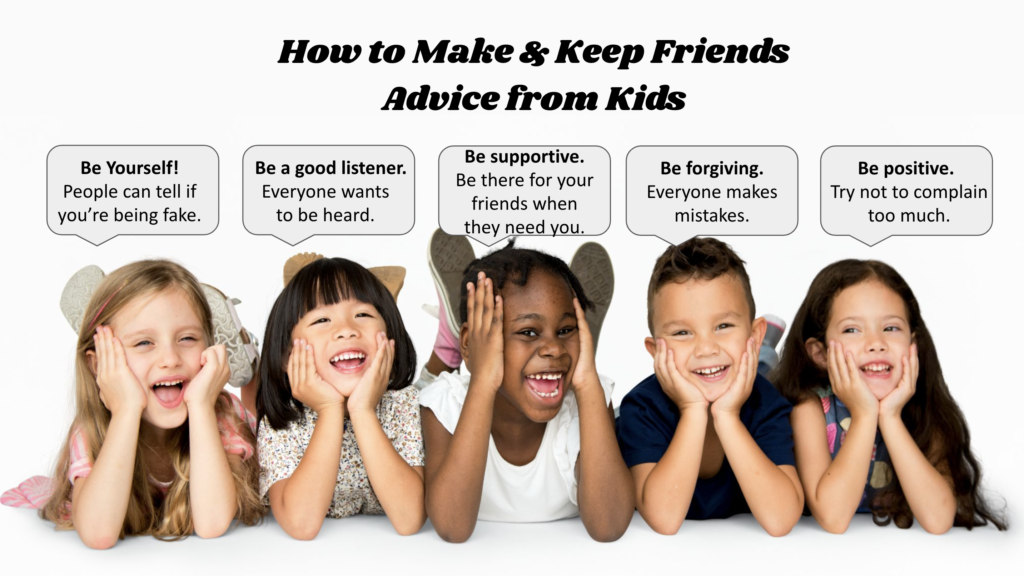Friendship can be kinda tricky. When kids are excited about having new friends, sometimes without meaning to, they end up pushing their friends away by doing things that ANNOY them. Has anyone ever accused you of being annoying? Then you might need to figure out how and when to stop so that you can keep your friends and continue to grow your friendships. What are some mistakes kids make when they are trying to make and keep friends? Here are a few that are pretty common:
Mistake #1: Holding on Too Tight
It’s natural to want to spend a lot of time with your friends, especially when you first become friends. However, it’s important to remember that your friends also have other friends and interests. If you try to control who your friends spend time with, you’re likely to push them away.
Here are some tips for avoiding the “holding on too tight” mistake:
- Respect your friends’ other relationships. Don’t get upset if your friend wants to spend time with someone else.
- Be flexible with your plans. If your friend can’t hang out one day, don’t take it personally.
- Give your friends space. Don’t text or call them constantly. Let them reach out to you sometimes.
Mistake #2: Trying Too Hard to Be Funny
Everyone wants to be liked, and sometimes we try too hard to be funny in order to make friends. However, if your attempt to “play around” is not fun for anyone else, or if your jokes are falling flat, you’re likely to annoy your friends instead of making them laugh.
Here are some tips for avoiding the “trying to be funny” mistake:
- Pay attention to your audience. Not everyone will find the same things funny.
- Don’t force it. If a joke isn’t funny the first time, don’t keep telling it.
- Read the room. If your friends are not laughing, it’s time to move on.
Mistake #3: Missing the Stop Signals
If you do something that bothers your friend, they will usually give you a signal to stop. This could be a verbal cue, such as “stop that,” or a nonverbal cue, such as rolling their eyes or turning away. If you ignore these stop signals, you’re sending the message that you don’t care about your friend’s feelings.
Here are some tips for avoiding the “missing the stop signals” mistake:
- Pay attention to your friend’s body language. If they look uncomfortable or annoyed, it’s time to stop what you’re doing.
- Ask your friend if they’re okay. If you’re not sure if you’ve done something wrong, just ask.
- Apologize if you’ve upset your friend. Even if you didn’t mean to, it’s important to apologize if you’ve hurt your friend’s feelings.
Making and keeping friends takes time and effort. By avoiding these common friendship mistakes, you can improve your chances of building strong and lasting relationships.
Watch this lesson on YouTube
If you’re intrigued by the ideas we’ve been exploring here, I invite you to dive even deeper into the world of social and emotional learning on our YouTube channel. Imagine friendships as seeds that need the right conditions to grow and flourish. With relatable stories and easy-to-understand explanations, we explore three common friendship mistakes and the practical ways to avoid them.
Books Related to this Topic

Social Thinking and Me Thinksheets for Social Emotional Learning breaks larger and more complicated social concepts down into smaller chunks to make it easier for adults to teach and easier for kids to learn. The books zero in on real and pressing social challenges faced by tweens and teens, such as managing social anxiety, making friends, dealing with bullies, understanding body language, filtering thoughts and blurting, fitting in, and much more.
Our Brains are Like Computers uses a lot of easily identifiable computer metaphors and visual diagrams to help children increase their awareness about how their words and actions affect other people. It reads like a story but is full of great lessons about perspective taking and social thinking. Included are open-ended questions at the end of each chapter to help initiate conversation. The book also contains printable games and worksheets that can help children investigate how their words and actions impact the world around them.
The Unwritten Rules of Friendship: Simple Strategies to Help Your Child Make Friends is a compilation of practical activities, games, and exercises that can be used to identify a student’s strengths and strategies for increasing their awareness of the unspoken rules that govern social interactions and acquire the skills that are essential for building, sustaining, and repairing relationships.
The Asperkids Secret Book of Social Rules is THE Handbook of Not-So-Obvious Social Guidelines for Tweens and Teens with Asperger Syndrome. It’s a top secret guide to all of the hidden social rules in life that often seem strange and confusing to young people with Asperger syndrome. But you don’t have to be on the Autism Spectrum or work in special education to benefit from book; it’s filled with all kinds of witty and wise insights into the social codes that baffle a wide range of neurodivergent learners: those with ADHD, Executive Functioning challenges, social skills deficits, and even “typical” kids who are struggling with tricky friendship dilemmas. This secret code-cracking rule book is among my favorite resources for planning classroom lessons, small group counseling groups, and SEL videos.
The Essential 55: An Award-Winning Educator’s Rules for Discovering the Successful Student in Every Child is written by Ron Clark, an educator known for his innovative teaching methods. Clark outlines 55 rules or guidelines for students to follow in order to become successful learners and responsible individuals. Many of the rules he outlines are focused on fostering positive social interactions, respectful behavior, and effective communication among students. The aim is to foster qualities that contribute to well-rounded and socially responsible individuals.
How to Make & Keep Friends: Tips for Kids to Overcome 50 Common Social Challenges offers social skills advice presented in a reference guide format. The book contains sections and lists to quickly discover tips and strategies on a specific topic or social situation where help is needed. While all children will benefit from the tips in the book, it has been especially beneficial to children with special needs that impact their socialization abilities. Included are simple strategies to navigate everyday social situations that can be challenging or awkward for kids.
Dude, That’s Rude (Get Some Manners!) uses relatable scenarios and colorful illustrations to teach children about appropriate behavior, communication, and interactions with others. The book covers a wide range of topics, including table manners, respecting personal space, handling conflicts, and more. Each topic is presented in a kid-friendly and humorous manner, making it easy for young readers to grasp the concepts.
Social Rules for Kids: The Top 100 Social Rules Kids Need to Succeed helps open the door of communication between parent and child by addressing 100 social rules for home, school, and the community. Using simple, easy-to-follow rules covering topics such as body language, manners, feelings, and more, this book aims to make students’ lives easier and more successful by outlining specific ways to interact with others on a daily basis.
Advice from Kids


